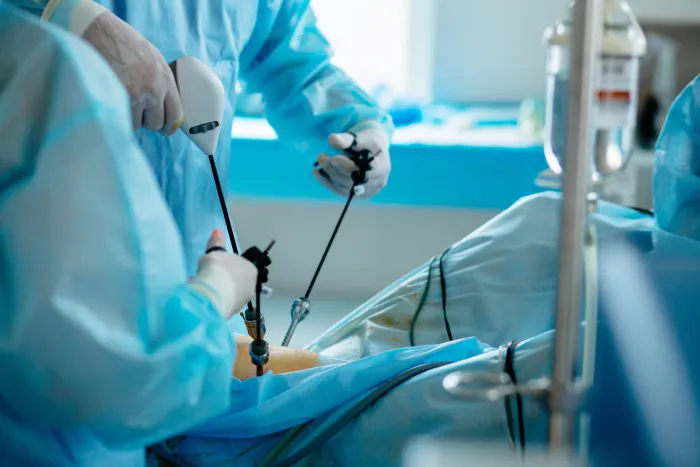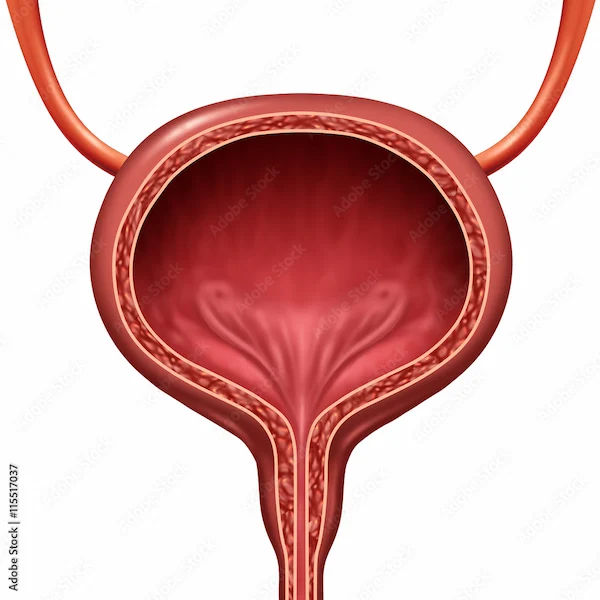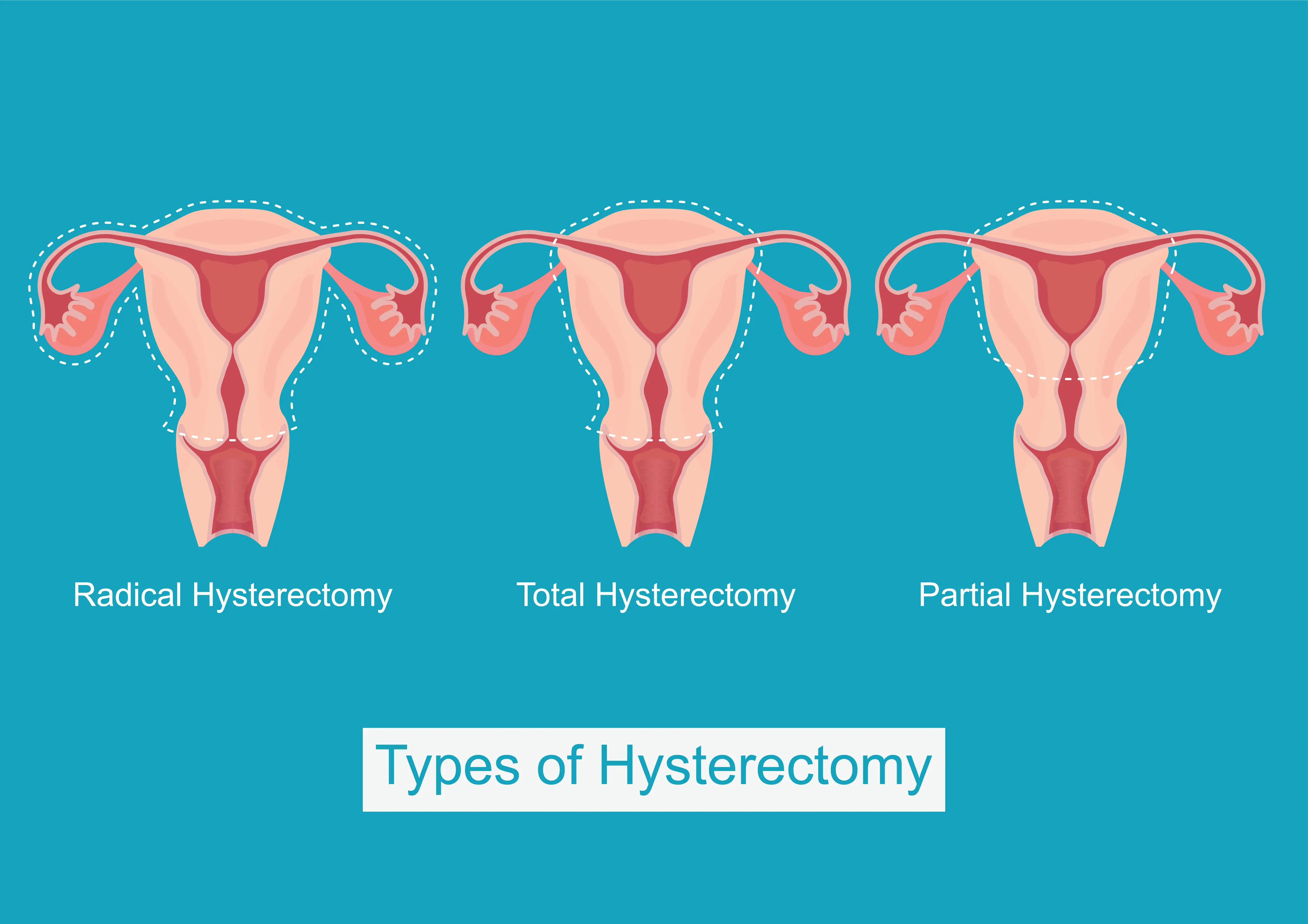Recovery From Hysterectomy Robotic Surgery
Discover essential tips for recovery from hysterectomy robotic surgery. Learn how to manage post-op symptoms, boost healing, and return to daily life with confidence.

Written by Dr. Rohinipriyanka Pondugula
Reviewed by Dr. Md Yusuf Shareef MBBS
Last updated on 13th Jan, 2026

Introduction
Undergoing a hysterectomy, especially with robotic surgery, can feel overwhelming. But with the right knowledge and care, recovery can be smooth and comfortable. This guide will walk you through what to expect after a robotic hysterectomy, how to take care of yourself, and when to seek help.
What Is a Robotic Hysterectomy?
A robotic hysterectomy is a minimally invasive surgery where a surgeon removes the uterus (and sometimes other reproductive organs) using robotic-assisted technology. Compared to traditional open surgery, robotic surgery offers:
Smaller incisions
Less pain and blood loss
Faster recovery
Lower risk of infection
What to Expect After Surgery?
Things to expect after surgery are as follows:
1. Immediate Recovery (First Few Days)
Hospital Stay: Most patients go home the same day or within 24 hours.
Pain Management: You may have mild to moderate discomfort, but pain medications will help.
Movement: You’ll be encouraged to walk gently to prevent blood clots.
2. First Two Weeks
Rest is Key: Avoid heavy lifting, bending, or strenuous activities.
Incision Care: Keep the surgical area clean and dry. Watch for signs of infection (redness, swelling, or pus).
Gas & Bloating: Common due to the CO₂ gas used during surgery. Walking helps relieve it.
3. Weeks 3-6
Gradual Activity Increase: Light household chores and short walks are okay, but avoid intense workouts.
Listen to Your Body: If something feels uncomfortable, stop and rest.
4. Full Recovery (6-8 Weeks)
Most women resume normal activities, including work and exercise, after 6 weeks (with doctor’s approval).
Sexual activity should wait until your doctor gives the green light (usually around 6 weeks).
Consult Top Specialists for Personalised Tips
Tips for a Smooth Recovery
Some of the tips for a smooth recovery are as follows:
1. Follow Your Doctor’s Advice
Take prescribed medications on time.
Attend follow-up appointments.
2. Eat a Healthy Diet
Fibre-rich foods (fruits, vegetables, whole grains) prevent constipation.
Protein (eggs, lean meat, lentils) helps with tissue repair.
Hydrate well to avoid urinary issues.
3. Gentle Movement Helps
Short walks improve circulation and prevent blood clots.
Avoid sitting or lying down for too long.
4. Emotional Well-being Matters
Hormonal changes (if ovaries were removed) may cause mood swings.
Talk to loved ones or a counsellor if you feel anxious or low.
5. Watch for Warning Signs
Contact your doctor if you experience:
High fever (over 101°F)
Heavy bleeding (soaking a pad in an hour)
Severe pain not relieved by medication
Foul-smelling discharge
When Can You Return to Work?
Timeline for returning to normal work life are as follows:
Desk job: 2-3 weeks (if comfortable).
Physical job: 4-6 weeks (doctor’s approval needed).
Conclusion
In conclusion, recovering from hysterectomy robotic surgery is generally quicker and less painful than traditional methods, thanks to its minimally invasive approach. With proper post-operative care, regular follow-ups, and a gradual return to normal activities, most patients can expect a smooth and successful recovery. Always consult your healthcare provider for personalised advice to ensure the best outcome for your individual health needs.
Consult Top Obstetrics and Gynaecology Surgeon
Consult Top Specialists for Personalised Tips

Dr. Korimilli Nisha
Obstetrician and Gynaecologist
10 Years • MBBS, MS (Obstetrics and Gynaecology)
Bansdroni
Siddhita Healthcare., Bansdroni

Dr. Mona Yadav
Obstetrician and Gynaecologist
19 Years • MBBS, MD (Obstetrics & Gynaecology)
Dombivli
Nulife multispeciality, Dombivli

Dr. Sreeparna Roy
Obstetrician and Gynaecologist
8 Years • MBBS , MS (OBSTETRICS & GYNAECOLOGY), Fellowship in Infertility, Endoscopy & Ultrasonography), Fellowship in Laparoscopy & Hysteroscopy,DRM
Barasat
Diab-Eat-Ease, Barasat

Dr. Somdutta Basu
Obstetrician and Gynaecologist
7 Years • MBBS, MS Obstetrics & Gynaecology
Bansdroni
Siddhita Healthcare., Bansdroni

Dr. Saheli Kapat
Obstetrician and Gynaecologist
11 Years • MBBS, DNB Obstetrics & Gynaecology,FMAS(Fellowship in Minimal access surgery)
Kolkata
MCR SUPER SPECIALITY POLY CLINIC & PATHOLOGY, Kolkata
Consult Top Obstetrics and Gynaecology Surgeon

Dr. Korimilli Nisha
Obstetrician and Gynaecologist
10 Years • MBBS, MS (Obstetrics and Gynaecology)
Bansdroni
Siddhita Healthcare., Bansdroni

Dr. Mona Yadav
Obstetrician and Gynaecologist
19 Years • MBBS, MD (Obstetrics & Gynaecology)
Dombivli
Nulife multispeciality, Dombivli

Dr. Sreeparna Roy
Obstetrician and Gynaecologist
8 Years • MBBS , MS (OBSTETRICS & GYNAECOLOGY), Fellowship in Infertility, Endoscopy & Ultrasonography), Fellowship in Laparoscopy & Hysteroscopy,DRM
Barasat
Diab-Eat-Ease, Barasat

Dr. Somdutta Basu
Obstetrician and Gynaecologist
7 Years • MBBS, MS Obstetrics & Gynaecology
Bansdroni
Siddhita Healthcare., Bansdroni

Dr. Saheli Kapat
Obstetrician and Gynaecologist
11 Years • MBBS, DNB Obstetrics & Gynaecology,FMAS(Fellowship in Minimal access surgery)
Kolkata
MCR SUPER SPECIALITY POLY CLINIC & PATHOLOGY, Kolkata

.webp)


